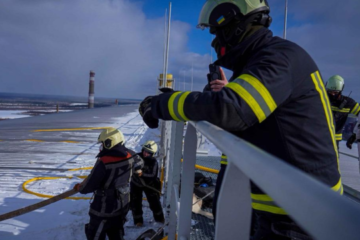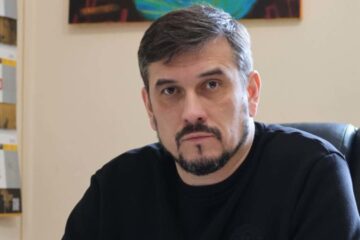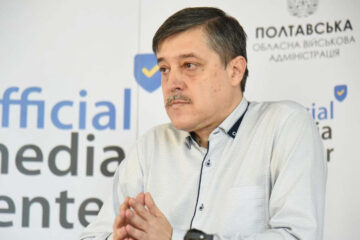
Negotiations regarding the release of military personnel and civilians from captivity take place in temporarily occupied territories of Ukraine, in Belarus, and in Russia. At times, meetings between the parties are held in the UAE, Saudi Arabia, and Turkey, which guarantee the safety of the participants.
This was stated in an interview with Ukrinform by Bohdan Okhrimenko, head of the secretariat of the Coordination Headquarters for the Treatment of Prisoners of War.
“Firstly, Belarus has only recently come into the picture. Secondly, throughout all exchanges, we have never seen representatives of the Russian side on our territory. We always go to them or to territory under their control. We are constantly at risk. We go there unarmed — at most, we wear a bulletproof vest and a helmet. On their side, there is always a large number of armed personnel,” he said.
Okhrimenko mentioned that he had participated in negotiations both in Russia and in occupied territories.
“Every exchange is a significant risk for those involved. We request a ceasefire, but it is almost never observed, mostly by the Russian side. Near the locations where exchanges take place, there have been artillery shelling incidents, or, under the cover of the ceasefire, enemy sabotage and reconnaissance groups have attempted to infiltrate,” he noted.
He recalled that in the spring of 2023, a Ukrainian convoy traveling to retrieve prisoners from the front line was attacked near Bakhmut.
“We were lucky that the soldiers we were rescuing had not yet arrived at the pickup point. They were on their way to meet the buses, which could not proceed further due to destroyed roads. From the front line to the buses, they were transported using tracked vehicles — APCs, IFVs, and tanks. While they were en route, the convoy of our buses waiting for them was shelled. Several people were injured, and two vehicles were burned,” Okhrimenko reported.
He explained that the Ukrainian negotiating group was formed at the beginning of Russia’s full-scale invasion and operates under the Law on Intelligence, which grants security service personnel the authority to negotiate prisoner exchanges. These negotiations are also regulated by specific classified resolutions. Based on these regulations, the Ukrainian team — including representatives of the Defense Intelligence Directorate (HUR), the Security Service of Ukraine (SSU), the Ministry of Internal Affairs (MIA), the Armed Forces of Ukraine (AFU), the Foreign Intelligence Service (FIS), and the Ombudsman’s Office — conducts negotiations with the Russian side, which includes representatives of the Russian Ministry of Defense, the Federal Security Service (FSB), and the Federal Penitentiary Service. At times, Russia’s Commissioner for Human Rights, Tatyana Moskalkova, also takes part.
Okhrimenko noted that Russia does not have a centralized structure responsible for prisoners of war, but discussions have begun about the need to establish such an organization.
“We hinted to them that centralizing the process would optimize it. They heard us, and now they are in the process of creating something similar to our Coordination Headquarters. They are currently discussing who will be part of this body, so we may soon see public information about it. If they establish it, it will simplify our communication and, hopefully, increase the number of our people returned from captivity,” he said.
Regarding mediation efforts by the UAE, Saudi Arabia, and Turkey, Okhrimenko explained that their involvement depends on specific negotiation circumstances and agreements.
“Sometimes their role is indirect, for example, providing a meeting venue for negotiations and guaranteeing security for both parties. Overall, these countries’ engagement with both sides of the armed conflict depends on the specific issue being discussed,” he noted.
Okhrimenko added that the Vatican has been “actively involved in negotiations concerning children and severely wounded individuals.”
“We are still working with them. Recently, our delegation met with Cardinal Zuppi (the Pope’s special envoy) in the Vatican. We are also in dialogue with the papal nuncio in Ukraine,” he said.
As reported, since the establishment of the Coordination Headquarters for the Treatment of Prisoners of War in 2022, a total of 4,131 people have been freed from captivity, including 1,358 in the past year alone.



